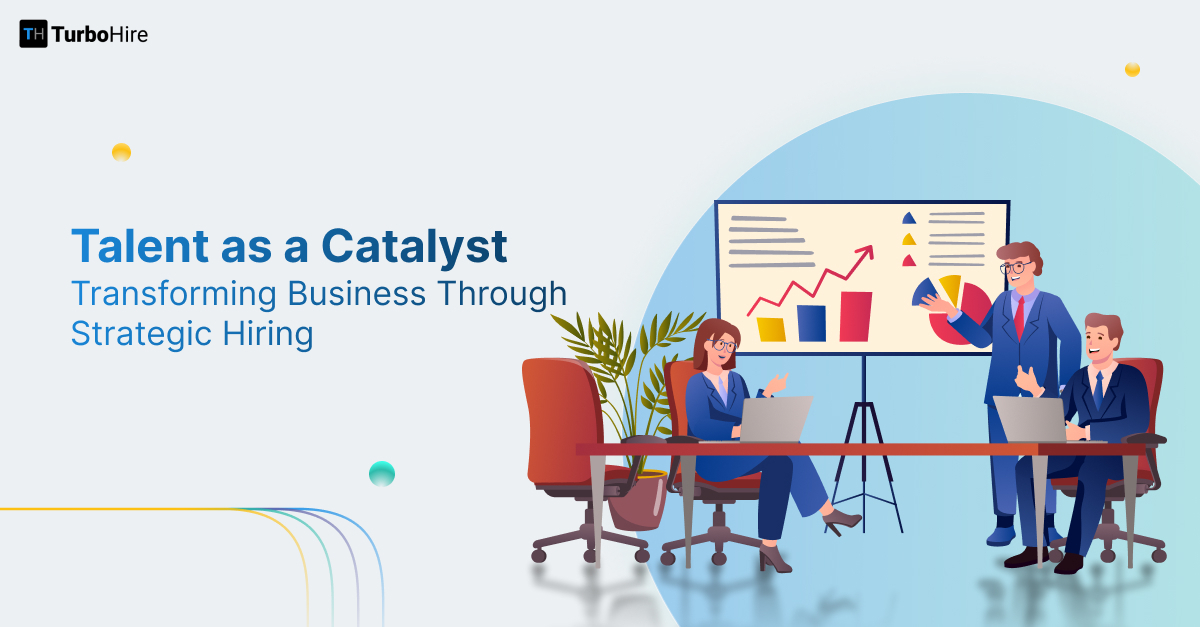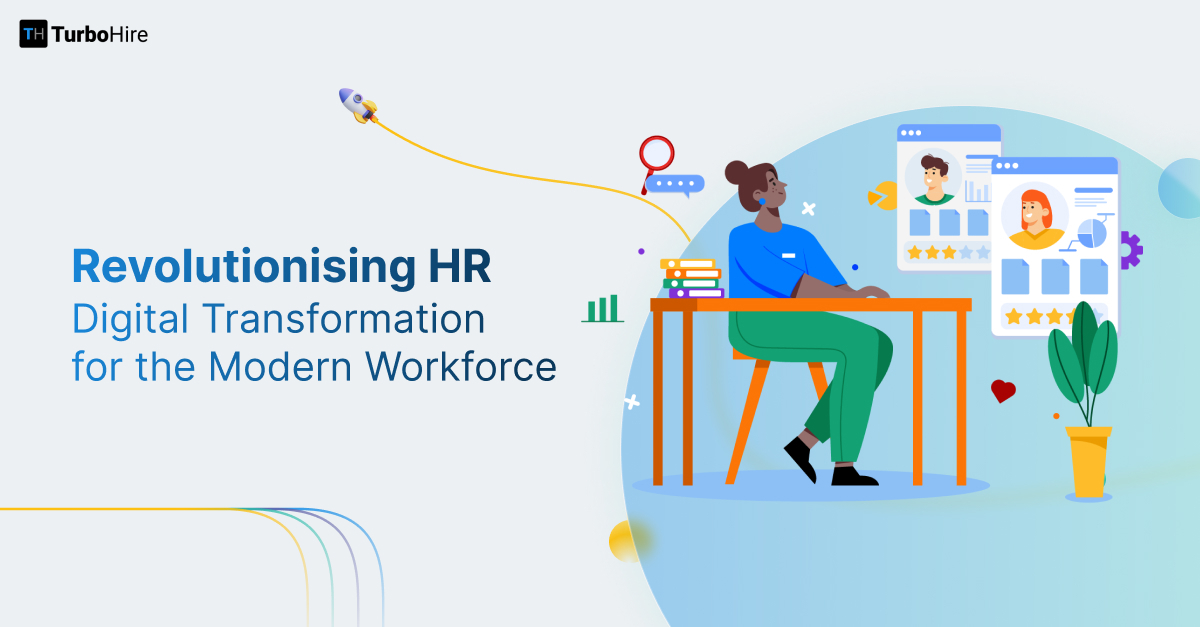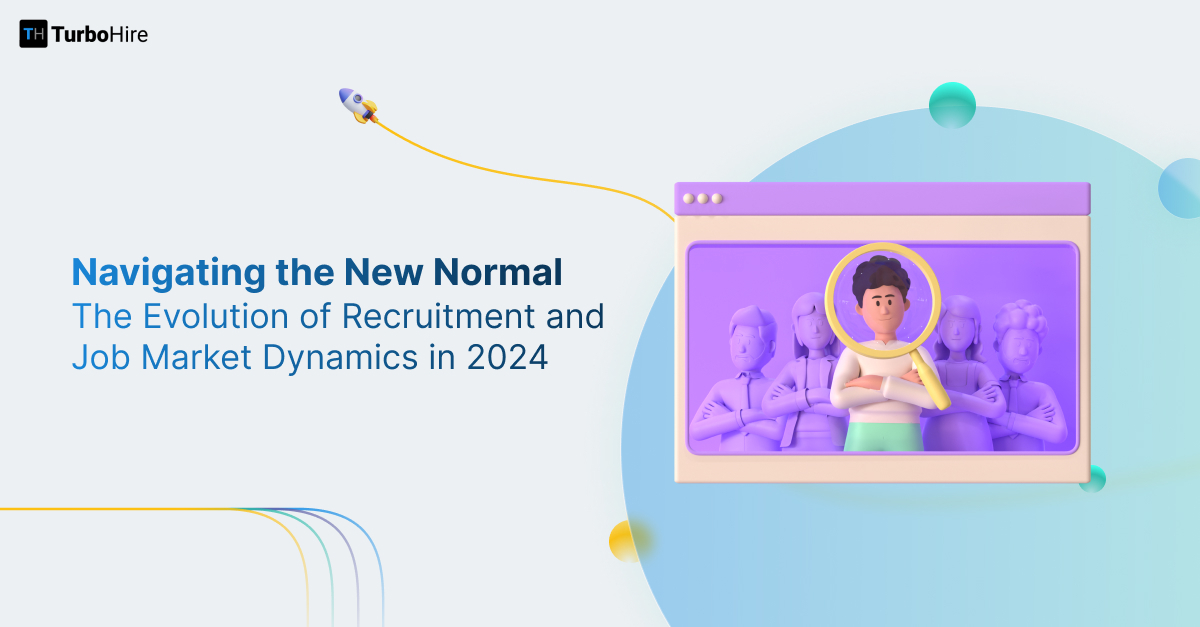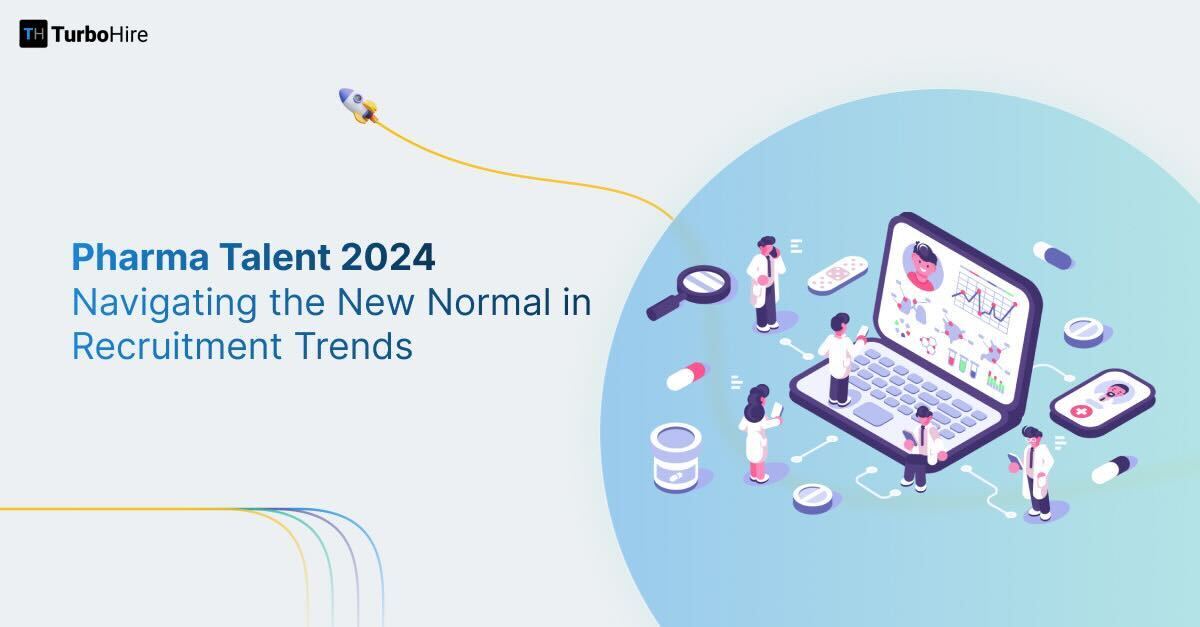As 2024 approaches, the workplace is currently going through a major transformation. This transformation is driven not only by technical improvements but also by evolving leadership and communication styles. In this extended exploration of “HR Trends 2024,” we go extensively into these key trends. We focus on how they are transforming the workforce landscape, from integrating AI into recruitment procedures to introducing cutting-edge recruitment solutions in India. The essay additionally covers a broader spectrum of increasing human resource trends, highlighting the importance of workplaces that are both measurable and fulfilling for employees. This article is an in-depth overview to recognizing and navigating the complexities of these developments, providing vital insights for HR professionals and business leaders as they adapt to the changing dynamics of the modern workplace.
Generative AI
Generative AI tools, such as ChatGPT, are set to revolutionise HR and talent management by enhancing recruitment, development, and planning processes. While it offers increased efficiency, this inclusion of AI must be balanced by HR professionals through vital human values essential in business; thus ensuring a harmonious blend of AI capabilities and human empathy and creativity. The advent of AI in the people function undoubtedly marks a transformative era in HR, merging technological advancements with the unique aspects of human interactions.
Upskilling and Reskilling
In 2024, one critical task for People Success teams will be to develop upskilling and reskilling programs for the workforce in response to the extending capabilities of technologies and AI. This includes defining the fundamental skills that enterprises will need when they integrate disruptive technologies such as generative AI. The emphasis should be on improving individuals abilities and competencies, such as strategic thinking, proficient problem-solving, creativity, and emotional intelligence, i.e. skills which effectively complement AI’s capabilities. This strategy is critical not only for a competitive advantage but also a sustainable workforce growth in the rapidly changing world of 2024, providing a balanced and productive partnership between human talent and technological advancements.
HR Tech Platforms
HR professionals are increasingly using advanced technologies like online learning platforms, VR/AR for training, and AI-driven recruitment tools, focusing on global data protection compliance. Recruitment technology, in particular, is revolutionizing HR strategies, enhancing efficiency in candidate screening and talent acquisition. These tools are improving the candidate experience and promoting diversity by eliminating biases in hiring processes. Additionally, they enable remote hiring and integration with HR management systems, streamlining the transition from candidate to employee.
Future advancements in recruitment technology, including blockchain and deeper AI integration, are expected to further transform HR strategies. These developments will play a vital role in attracting, hiring, and retaining talent efficiently while adhering to data security and diversity standards. As such, recruitment technology is becoming a key strategic component in the future of HR, balancing technological innovation with a better candidate experience and compliance.
Skills with Learning and Development
In the digital era, HR is pivoting toward skills development, emphasizing specific competencies over traditional qualifications for talent management. This shift is crucial for adapting to advanced technologies and digital workplaces, accelerated by the pandemic and AI integration. However, a gap exists in Learning & Development (L&D). While leaders believe in their organisation’s learning culture, employee perceptions tend to differ. Addressing this requires fostering a true learning environment while focusing on upskilling, performance, and engagement.
Additionally, Diversity, Equity, Inclusion, and Belonging (DEIB) are essential in talent strategies, enhancing internal mobility and retention. Despite the rapid evolution of HR technologies, maintaining a focus on transparency, communication, and data-driven approaches is essential. This approach ensures a balanced and effective talent management strategy.
Staff Retention
Effectively upskilling and training employees for the AI era can make them attractive to competitors and industries. To retain these valuable employees, firms must create compelling reasons for commitment. It is critical to foster a culture that values incentives and recognition, as well as to provide chances for ongoing professional growth through L&D. While high performers may seek new challenges, good retention methods can keep them content and engaged in their existing positions. This strategy not only protects the company’s investment in employee development but also ensures a steady, skilled, and high performing workforce.
Next Generation of Managers
HR professionals will confront the challenge of adapting to a changing workforce in 2024 as Gen Z enters the workplace and millennials move into leadership roles. This new workforce’s top goals include work-life balance, ongoing learning and upskilling, and a strong commitment to diversity, inclusiveness, and sustainability. HR tactics must adapt to meet these expectations, creating a work culture that reflects the values and goals of both generations.
Employer-Employee Relationships
Employer-employee relationships will become more complex in 2024 as the work environment evolves. Employers are now focusing on minimizing friction to promote engagement, performance, and retention. Gartner Analysis1 highlights several challenges, including low compliance with on-site attendance, with only 26% of employees fully adhering, and a major misalignment in performance expectations, with nearly half viewing their performance targets as unsustainable. Furthermore, just half of employees trust their employers, highlighting the need for greater transparency and trust-based interactions in order to promote a healthier, more productive workplace.
Embracing Flexible Working
HR professionals are now increasingly concentrating on managing the transition to flexible working, especially in firms with large workforces. This trend brings benefits such as increased employee satisfaction and access to a larger talent pool. However, it also presents difficulties in preserving company culture, team cohesion, and effective communication. In this ever-changing work environment, HR policies must innovate to guarantee connection and consistent accountability.
Greater Pay Transparency
Compensation plans are transforming in 2024 in order to satisfy the evolving requirements of the workforce by being more transparent, equal, and adaptable. Driven by trends such as “quiet quitting,” as described in Gallup’s 2023 State of the Global Workplace Report2 , there is a push toward more immediate and responsive compensation methods, such as performance rewards and practical benefits. Employers are understanding the value of treating employees as individuals by providing off-cycle, on-demand pay, and a variety of pay frequencies. This strategy is critical as businesses adjust to new work conditions and employee expectations, especially with return-to-work regulations.
Addressing Strikes and Industrial Action
Employees are increasingly demanding better compensation and working conditions in reaction to global economic uncertainty, resulting in a roughly 50% increase in significant work stoppages in 2022, according to the Bureau of Labor Statistics3. This circumstance requires HR practitioners to move beyond traditional people management and engage in meaningful discussions with employees in order to successfully understand and meet their needs and expectations.
Conclusion
To sum up, as we navigate the dynamic landscape of 2024, HR professionals will need to ensure they have a road map to understand and respond to the changing workplace. By emphasising the impact of technical developments, particularly AI in recruitment, and the significance of flexible HR policies, it points to a future in which managing the human aspect of digital transformation is critical.
This comprehensive overview not only addresses current shifts but also paves the way for future advancements in human resources and workplace management.



